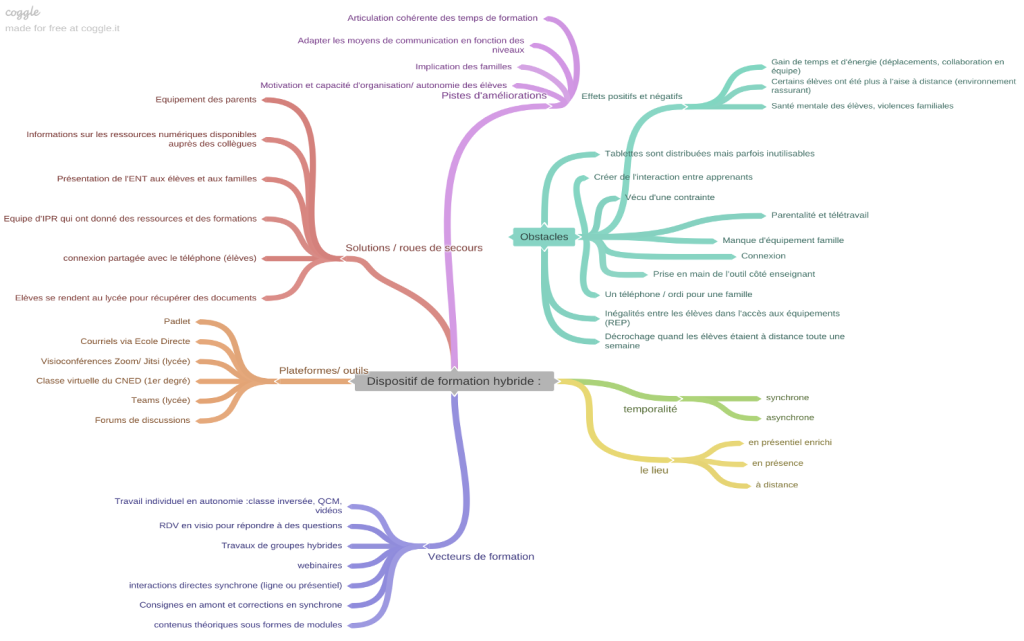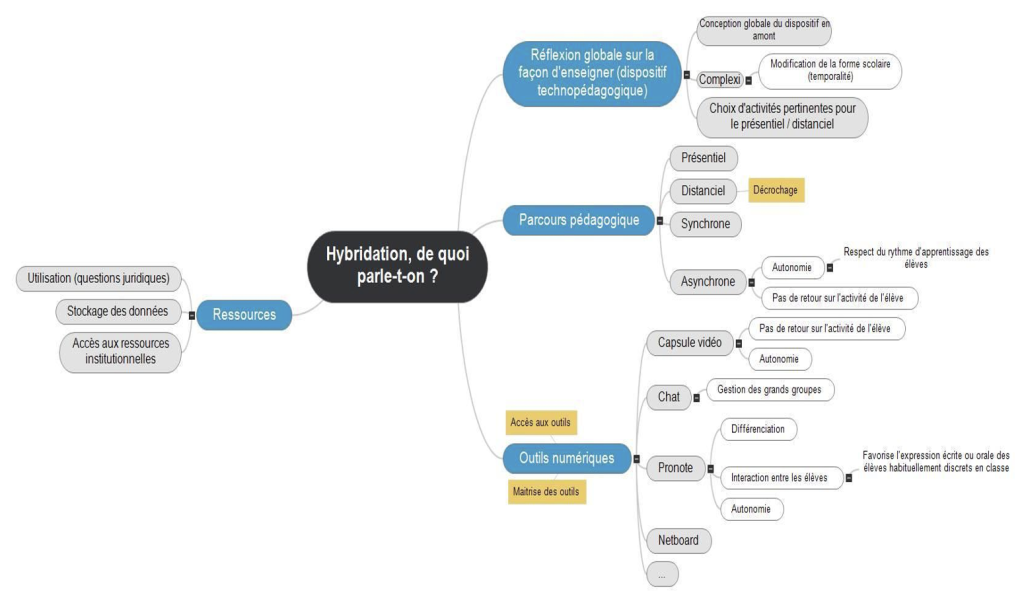Which collaboration between research and field around hybridization?
Teacher-researcher collaborations are generally joint in the context of research based on co-design. Indeed, researchers are increasingly called upon to collaborate with school stakeholders to design and conduct research.
The Covid-19 situation has shown the need for teachers to quickly develop and acquire new technological and pedagogical skills, as current events in the field show.
At the same time, educational research focuses on analyzing the changes that have taken place in teaching and learning practices in the context of the Covid-19 pandemic. At Aix-Marseille University (AMU), we consider the interesting experience resulting from the collaboration between teachers and researchers for the co-construction of the concept of hybridization. In the last months, we have focused on the experience of interactions between teachers and trainers.
Concerning hybridization, more specifically, few studies focus on primary and secondary education in France. On the other hand, many works have been developed in higher education over the past ten years (Burton et al., 2011; Réginald, Burton, Manusco, & Peraya, 2014; Docq, Lebrun & Smidts, 2010; Lebrun, 2015). We have mainly retained the work of Deschryver, Lameul, Peraya, & Villiot-Leclercq (2011) and Peraya, Charlier & Deschryver (2014) of the University of Geneva, who propose a frame of reference which is similar to the concept of ” blended learning” and “integrated learning.”; A conceptual framework with five main dimensions as so many points of vigilance allow one to specify and define what we mean by “hybridization” and design and implement hybrid devices. Considering the theory, the researchers proposed a mind map for the researcher to be discussed and appropriate.
The research question asks the following question: How did the collaboration between teachers and researchers lead to the co-construction of the concept of hybridization with mind maps?.


References
TICEMED 13 – 17-18 Octobre 2022
Towards a representation of the teaching hybridization by secondary school teachers
Valérie CAMPILLO, Patrice LAISNEY, Hélène CHENEVAL- ARMAND, Maria IMPEDOVO